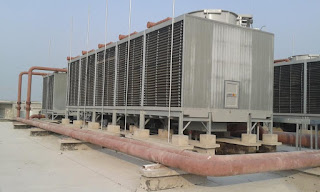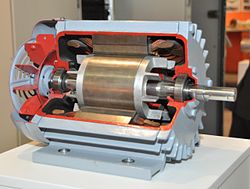How To Increase Cooling Tower Efficiency?
cooling towers. A device for dissipating heat from processes such as water evaporation. In this article, we will introduce solutions for Increasing Cooling Tower Efficiency. Stay with us.
The U.S. Department of Energy (DOE) is proposing to provide funding to the State of Arizona to replace parts of the heating, ventilation, and air condition system that have reached their expected useful life with more energy-efficient equipment at the Arizona State Veterans’ Home in Phoenix, AZ. Specifically, the cooling towers, condenser pumps, air dirt separator, interconnecting piping with valves and fittings, and the controls would be replaced.
a cooling tower is a heat rejection device that rejects waste heat to the atmosphere through the cooling of a water stream to a lower temperature. Cooling towers may either use the evaporation of water to remove process heat and cool the working fluid to near the wet-bulb air temperature or, in the case of closed circuit dry cooling towers, rely solely on air to cool the working fluid to near the dry-bulb air temperature.
Recirculating cooling systems cool water by exposure to ambient air in either cooling towers or (less frequently) cooling ponds. Heat transfer with air occurs primarily through evaporation. As water evaporates, minerals and other impurities in the remaining coolant water become increasingly concentrated and must be removed by periodic “blowdown” cycles. Recirculating systems only withdraw makeup water to replace evaporative losses and maintain water quality. Recirculating cooling systems withdraw 20 – 80 times less water than once-through systems, but the percentage of water consumed is much greater. Once-through cooling systems consume about 4% of the water withdrawn, while recirculating systems consume 80% of the water withdrawn.
How To Increase Cooling Tower Efficiency?
Water used in the tower for the cooling process is cycled through the device a number of times before being discharged, and COC is a number that quantifies how many cycles there could be. It is considered the primary indicator of cooling tower efficiency.
You can also refer to the following resources to read about Cooling Tower Efficiency Calculation.




Comments
Post a Comment